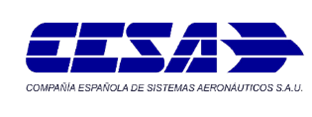
CESA has signed a contract with the South Korean firm KAI, Korean Aerospace Industries, whereby the Spanish company CESA becomes responsible for the development and manufacture of the Arrestor Hook Emergency Braking System for the new KF-X 5th generation fighter jet. In its use conditions, this emergency system, connected to the braking rod cable, must be able to stop the aircraft launched at 350km/h in less than 365 meters of runway.
This system comprises three elements:
• Shank: Structural rod anchored to the aircraft and self-centering system.
• Shock Absorber: Complex mechanical fluid unit with two functions: actuator and shock absorber.
• Uplock: The release hook that, through either electric or manual command, enables the release of the shank’s free end.
The contract for developing the engineering and manufacturing of this system has an expected duration of seven years. CESA’s participation in the conceptual design of the system is significant and includes the task of integration with the aircraft and support for the definition of the system security and reliability requirements.
CESA bolsters its experience in this field, particularly noteworthy for carrying out:
• Support for the definition of requirements in the integration of a first-order system with an aircraft.
• Simulation capability at the system level and integration with the aircraft to determine dynamic performance and induced loads.
This contract falls within the policy of reaching new markets, which has been followed by CESA since its creation, and which has included South Korea since 2014, with the LCH/LAH. It is being complemented with another contract, signed a month ago with EMK, for the development and manufacture of the KF-X hydraulic tanks.
KF-X is a program developed jointly by South Korea and Indonesia. The potential market for this aircraft exceeds 200 units, intended for the Air Force of the Republic of South Korea, the Indonesian Air Force, plus exports. Its first flight is scheduled for 2022.
This system allows CESA to continue increasing the number of contracts signed in South Korea, reinforcing its relationship with clients in the Asia-Pacific region (CESA already works for IPTD in Indonesia on the C212), while strengthening the company’s capacity to develop complex systems and ensuring recognition of its aircraft integration capabilities.

